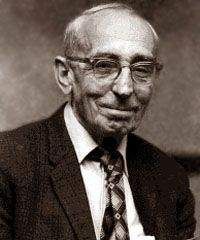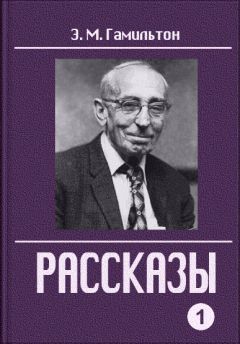Пользователь - o 3b3e7475144cf77c
already talked to you."
Irma had been living with the spirits now for nearly four years, and had got more or less used
to them; but this was the first time she had come upon such an incident. Lanny explained that the
literature of psychical research was full of "cross-correspondences." Sometimes one part of a
sentence would be given in England and another in Australia. Sometimes there would be
references by page and line to a book, and through another medium references to some other
book, and when the words were put together they made sense. It seemed to prove that whatever
intelligence was at work was bound by none of the limitations of time and space. The main
trouble was, it was all so hard to believe—people just couldn't and wouldn't face it.
"Well," said Lanny, "do you want to have another baby?"
"What do you suppose Grandfather will do if we don't?"
"You go and ask him," chuckled Lanny.
Irma didn't. But a day or two later came a letter from Robbie, telling what the old gentleman
would do if they obeyed him. He had established in his will a trust fund for Frances Barnes
Budd to the amount of fifty thousand dollars, and had provided the same amount for any other
child or children Irma Barnes Budd might bear within two years after his death. The old realist
had taken no chances, but added: "Lanny Budd being the father."
XI
The golden-haired and blue-eyed young sports director, Hugo Behr, came to see his
American friend, and was taken for a drive. Hugo didn't need any urging to induce him to
"spill the dirt" about the present tendencies of his National Socialist Party; he said he had joined
because he had believed it was a Socialist party and there were millions who felt as he did—
they wanted it to remain Socialist and they had a right to try to keep it so, and have it carry out
at least part of the program upon which it had won the faith of the German masses. Breaking
up the great landed estates, socializing basic industries and department stores, abolishing
interest slavery— these were the pledges which had been made, millions of times over. But now the
party was hand in glove with the Ruhr magnates, and the old program was forgotten; the
Führer had come under the spell of men who cared only about power, and if they could have
their way, all the energies of the country would go into military preparation and none into
social welfare.
"Yes," said Hugo, "many of the leaders feel as I do, and some of them are Hitler's oldest party
comrades. It is no threat to his leadership, but a loyal effort to make him realize the danger
and return to the true path." The young official offered to introduce Lanny to some of the men
who were active in this movement; but the visitor explained the peculiar position he was in, with
a Jewish relative in the toils of the law and the need of being discreet on his account.
That led to the subject of the Jews, and the apple-cheeked young Aryan proved that he was
loyal to his creed by denouncing this evil people and the part they had played in corrupting
German culture. But he added he did not approve the persecution of individual Jews who had
broken no law, and he thought the recent one-day boycott had been silly. It represented an
effort on the part of reactionary elements in the party to keep the people from remembering
the radical promises which had been made to them. "It's a lot cheaper and easier to beat up a
few poor Jews than to oust some of the great Junker landlords."
Lanny found this conversation promising, and ventured tactfully to give his young friend
some idea of the plight in which he found himself. His brother-in-law's brother had been
missing for more than a week, but he was afraid to initiate any inquiry for fear of arousing
those elements about which Hugo had spoken, the fanatics who were eager to find some
excuse for persecuting harmless, idealistic Jews. Lanny drew a picture of a shepherd boy out of
ancient Judea, watching his flocks, playing his pipe, and dreaming of the Lord and His angels.
Freddi Robin was a Socialist in the high sense of the word; desiring justice and kindness
among men, and willing to set an example by living a selfless life here and now. He was a fine
musician, a devoted husband and father, and his wife and mother were in an agony of dread
about him.
"Ach, leider!" exclaimed the sports director, and added the formula which Lanny already knew
by heart, that unfortunate incidents were bound to happen in the course of any great social
overturn.
"For that reason," said Lanny, "each of us has to do what he can in the cases which come to
his knowledge. What I need now is some person in the party whom I can trust, and who will do
me the service to try to locate Freddi and tell me what he is accused of."
"That might not be easy," replied the other. "Such information isn't given out freely—I mean,
assuming that he's in the hands of the authorities."
"I thought, that you, having so many contacts among the better elements of the party, might
be able to make inquiries without attracting too much attention. If you would do me this favor, I
would be most happy to pay you for your time—"
"Oh, I wouldn't want any pay, Herr Budd!"
"You would certainly have to have it. The work may call for a lot of time, and there is no
other way I can make it up to you. My wife is here, and neither of us can enjoy anything,
because of worrying about this poor fellow. I assure you, she would consider a thousand marks
a small price to pay for the mental peace she would get from even knowing that Freddi is still
alive. If only I can find out where he is and what he's accused of, I may be able to go to the
proper authority and have the matter settled without any disagreeable scandal."
"If I could be sure that my name wouldn't be brought into the matter—" began the young
official, hesitatingly.
"On that I will give you my word of honor," said Lanny. "Nothing will induce either my
wife or myself to speak your name. You don't even have to give it when you call me on the
phone; just tell me that you have, say, an Arnold Boecklin painting to show me, and tell me some
place to meet you, and I'll come. Be so good as to accept two hundred marks for a start—on
the chance that you may have to pay out sums here and there."
XII
Minister-Prasident Hermann Wilhelm Goring flew to Rome unexpectedly. He had been there
once before and hadn't got along very well with his mentor, the Blessed Little Pouter Pigeon;
they were quarreling bitterly over the question of which was to control Austria. But they
patched it up somehow, and the newspapers of the world blazed forth a momentous event: the
four great European nations had signed a peace pact, agreeing that for a period of ten years
they would refrain from aggressive action against one another and would settle all problems by
negotiation. Mussolini signed for Italy, Goring for Germany, and the British and French
ambassadors to Vienna signed for their governments. Such a relief to the war-weary peoples of
the Continent! Goring came home in triumph; and Irma said: "You see, things aren't nearly as
bad as you've been thinking."
The couple went to a reception at the home of the Frau Reichsminister Goebbels, where they
met many of the Nazi great ones. Lanny, who had read history, remembered the Visigoths,
who had conquered ancient Rome with astonishing ease, and wandered about the splendid
city, dazed by the discovery of what they had at their disposal; he remembered Clive, who had
been similarly stunned by the treasures of Bengal, and had said afterward that when he
considered what his opportunities had been, he was astonished at his own moderation.
So it was now with the members of the N.S.D.A.P.; not the moderation, but the
opportunities. Men who a few years ago had been without the price of a meal or a place to lay
their heads had suddenly come into possession of all Germany. They wore the finest uniforms that
Berlin's tailors could design, and their women displayed their charms in the latest Paris models.
Orders and medals, orchids and sparkling jewels—did they get all that out of party salaries, or
the stipends of office in the Deutsches Reich or Preussischer Staat? Or had each one got busy on
his own? They wouldn't have to rob, or even to threaten; they would only have to keep their
hands out and the possessors of wealth and privilege would come running to fill them.
Here were the friends and camp followers of Juppchen Goebbels, frustrated journalist from
the Rheinland, now master of his country's intellectual life. His word could make or break
anyone in any profession; an invitation to his home was at once a command and the highest of
opportunities. Men bowed and fawned, women smiled and flattered—and at the same time
they watched warily, for it was a perilous world, in which your place was held only by sleepless
vigilance. Jungle cats, all in one cage, circling one another warily, keeping a careful distance;
the leopard and the jaguar would have tangled, had not both been afraid of the tiger.
But they were civilized cats, which had learned manners, and applied psychology, pretending
to be gentle and harmless, even amiable. The deadliest killers wore the most cordial smiles; the
most cunning were the most dignified, the most exalted. They had a great cause, an historic
destiny, a patriotic duty, an inspired leader. They said: "We are building a new Germany," and at
the same time they thought: "How can I cut out this fellow's guts?" They said: "Good evening,
Parteigenosse" and thought: "Schwarzer Lump, I know what lies you have been whispering!"
They said: "Guten Abend, Herr Budd," and thought: "Who is this Emporkommling, and what
is he doing here?" One would whisper: "The Chief thinks he can make use of him," and the
other would be thinking: "The Chief must be plucking him good and plenty!"
XIII
"Seien Sie willkommen, Herr Budd" said the hostess, with the loveliest of her smiles. "You
have been moving up in the world since we last met."
"Don't say that, Frau Reichsminister!" pleaded Lanny. "I beg you to believe that what
happened was totally unforeseen by me, and unsought." Would she believe it? Of course she
wouldn't— unless she happened to have inside information.
"Aren't you going to tell me about it?" A mischievous request, and therefore the way to
disguise it was with the most mischievous of smiles. On the same principle that you spoke the
truth only when you didn't wish to be believed.
Lanny, who had learned about intrigue when he was a tiny boy hearing his mother and father
discussing the landing of a munitions contract—Lanny Budd, grandson of Budd Gunmakers,
knew nothing better to do in a crisis than to be honest. "Liebe Frau Reichsminister," he said, "I
beg you to be kind to a stranger in a strange land. I am in a painful position. I receive orders
from those in authority, and I dare do nothing but obey."
"If I give you orders, will you obey, Herr Budd?" The wife of a Cabinet Minister apparently
knew other ways to deal with one in a painful position. "What you call authority has a way of
shifting suddenly in times like these. You had better give me an opportunity to advise you."
"Indeed, Frau Reichsminister, I will avail myself of your kindness." He had meant to say: "As
soon as I am free to do so," but he decided to leave himself free to think it over.
Irma was being entertained by "Putzi" Hanfstaengl, wealthy art-publisher's son who played
clown to Hitler and staff; half American and a Harvard graduate, he was tall and big and waved
his arms like a windmill; for a while he was solemn, and then suddenly he danced, capered,
made jokes, and laughed at them so loudly that everybody else laughed at him. The younger men
were curious about the famous heiress, and she enjoyed herself as she generally did in
company. Elegant, uniformed men bowed attendance and flattered her, bringing food and
over-strong drink—many of them had too much of it, but that was nothing new in smart
society, and Irma knew how to deal with such men.
Driving home in the small hours of the morning she was a bit fuddled and sleepy. Next
morning, or rather much later that same morning, they sat in bed sipping their coffee, and
Irma said what she thought of the affair. She had met agreeable people and couldn't believe they
were as bad as they were painted. Lanny had to wait until they were in the car before getting
in his side, which was: "I felt as if I were in a rendezvous of pirates."
Said Irma: "Listen, darling; did you ever meet a company of politicians in the United States?"
He had to admit that he lacked any basis of comparison, and his wife went on:
"They used to come to Father's house quite often, and he used to talk about them. He said
they were natural-born hijackers. He said that no one of them had ever produced anything—all
they did was to take it away from business men. He said they wouldn't stop till they got
everything in their clutches."
"The prophecy has come true in Germany!" said Lanny.
20
Sufferance Is the Badge
I
A LONG letter from Robbie Budd, telling of the situation resulting from his father's death.
The old gentleman had held on to his power up to the last moment, but had failed to decide the
question of who was to be his successor. Long ago he had tried to settle the quarrel between his
oldest and his youngest sons; then he had given up, and left them to fight it out—and they were
doing so. Each wanted to become head of Budd's, and each was sure that the other was unfitted
for the task. "I suppose," said Robbie, bitterly, "Father didn't consider either of us fitted."
Anyhow, the question was going to be settled by the stockholders. It so happened that an
election of directors was due, and for the next sixty days Robbie and Lawford would be
lobbying, pulling wires, trying to corral votes. They had been doing this in underground ways
for years, and now the fight was in the open. Meanwhile the first vice-president was in charge




